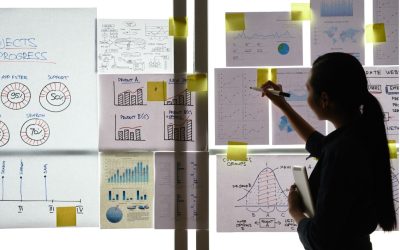About Urban Media Lab
The Urban Media Lab (UML) is LabGov’s platform for debate on the complex challenges that cities around the world are facing today. The UML brings together city-makers, researchers, citizens and urban experts to reflect on a variety of themes relating to urban living and the future of cities.
Discover the U20
From Rising Seas to Legal Gaps – From a fragmented to a mosaic approach on climate refugeeism
Stella Scocco Over the last fifty years, international law has adapted to meet the demands of new transnational challenges in our interconnected and globalized world. Among these challenges, the rise of environmental law has gained particular prominence, especially in...
Sharing knowledge to share energy: the experience of a Renewable Energy Community
Collective consumption in Italy In the past, the energy transition was almost only addressed by governments, who invested money to overcome the high cost of renewable energy. In recent years, following a strong reduction of cost associated with the clean energy...
AI Labelling Workforce in Africa: A Strategic Opportunity for the Continent’s Development
Artificial Intelligence (AI) has become a major driving force in the global economy. Its exponential growth is impressive: its market value, estimated at over $184 billion in 2024, is expected to reach $826.7 billion by 2030. If you have used a mobile app to learn a...
Recovery and Resilience Fund and sustainable innovation: beyond public-private partnership
By enacting Regulation 2021/241/EU, the European Union rolled a novel method of government (Lupo, 2023) out to achieve shared progress on pivotal and long-term objectives, some of which had already been enshrined in the EU Treaties (e.g. green transition, social and...
Smart grids: Toward an Intelligent and Sustainable Energy Transition
Annalisa Giannuzzi In an era marked by climate crisis and accelerated urbanization, the shift towards a low-carbon economy is no longer a mere aspiration but an urgent necessity. Smart grids, or “intelligent” electricity networks, represent one of the...
Regulatory Capture and Dieselgate: How U.S. and EU Emissions Oversight Enabled the Volkswagen Scandal
In 2013 the International Council on Clean Transportation (ICCT), a non-profit public policy think tank, was about to unintentionally expose the biggest emission fraud case in the history of the world when they granted West Virginia University’s Centre for Alternative...
Would a common water label at the European level help countries achieve water efficiency in a cohesive way?
Seems that Europe has enough water to satisfy all existing needs, but this is not true for all states equally. Despite the thousands of freshwater lakes, rivers, and groundwater sources available, the rise in water demand across Europe has increased so much over the...
How can innovations and policies in the agri-food system effectively mitigate the impacts of climate change on the vulnerabilities of West African populations; specifically in terms of Famine, health, agriculture, poverty, drought, and floods?
Kodjori Carlos Junior Farouk LOUGOUROU Climate is an important factor in agriculture, it is considered the driving force of the agricultural sector due to its strong influence. An essential factor in economic growth, agriculture represented 4% of global gross...
How Urban Planning Can Help in Fighting Climate Change?
Cities, the most promising place Cities are nowadays increasingly attracting and represent the place where many people try their best to succeed. But in this scenario lies a big paradox which in this historical moment sounds promising and scary at the same time....
Spread the Word
LabGov Brochure
Presentation of LabGov work and vision
Want to contribute?
Download the call for submissions
Folllow us
Urban Journalism Institute
The Urban Journalism Institute
The Urban Journalism Institute is a platform incubated by LabGov.City to promote urban journalism as a tool to put forms of sustainable and inclusive development at the center of the current conversation on cities and their governance. The Institute aggregates journalists, communicators, experts and policymakers to share knowledge about, and debate on urban topics, as well as assist regional, national and local governments, NGOs, and foundations in the communication of urban strategies and projects on the field.
The Urban Journalism Institute is co-directed by Simone d’Antonio and Alessandra Pirera in partnership with UN-Habitat and other LabGov.City partners such as Luiss University and Georgetown University.
What we do?
• Trainings for journalists, communicators s and press officers
• High-level dialogues with editors
• Management of urban communications
• Media monitoring and networking
• Urban reportages and portfolios
• Media tours
#UrbanJournalism
Urbanjournalisminstitute@gmail.com

Changing the conversation about cities
Cities are the places where most of the challenges of our time are converging. Innovative solutions and experiences of urban governance and economy shared and discussed in a multilevel dimension can be influential in changing the approach to cities in national and local contexts worldwide.
Media have a decisive role in promoting urban debates at all levels. While they cover urgent contemporary trends, sharing news about economic crisis, refugees and migrants’ emergencies, women struggles, or natural disasters, they are talking about how cities are planned, managed and lived.
Exploring new communications tools to develop meaningful urban storytelling will contribute to spread new narratives about cities able to foster active participation of citizens and to push innovative social, economic and environmental urban policies. In this sense, cities are becoming the testing ground also to stimulate a more civic and substantive engagement of media in sustainable development processes at local and global level.









